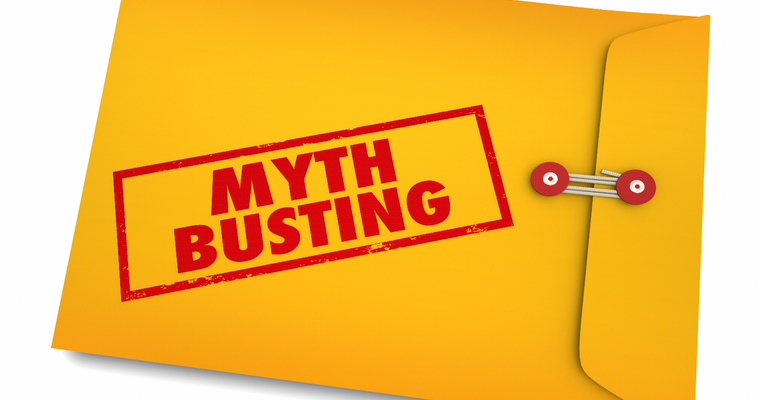Three of the biggest sex myths spreading on social media
Swipe up if you've ever believed any of these shockingly common sex myths circulating online. Let's bust them together!
- Ornella Jameson
- May 13, 2025
- 0 Comments
- 2519 Views
Exercise caution if TikTok has become a primary source of information and advice in various aspects of life. While the platform may offer creative insights, it is essential to recognize its limitations. Although TikTok may provide tutorials on non-conventional uses of ingredients, such as incorporating flour into a four-layer cake, it is not a reliable or expert guide for matters related to sexual health or intimate relationships.
It is advisable to seek information from credible sources and professionals in the respective fields to ensure accurate and safe guidance.
So before you take caffeine as a performance drug or mix pineapple and apple cider vinegar for whatever use TikTok advised you, please take notes of the dangers it might also include.
Remember that only health professionals can and must give you sexual advice and not TikTok or Instagram influencers.
For instance, 36% of women think it's necessary to clean the inside of their vagina regularly, but that's not true. The vagina cleans itself. Washing inside can mess with its natural balance, causing infections and discomfort. Talking about sexual health is important, but it's crucial to get accurate, helpful information. That's why we asked experts, like Pastides to correct common myths about sex on TikTok and Instagram.
Myth 1: treating infections with home products
Regrettably, there's a lot of wrong information floating around about how to deal with a vaginal yeast infection. A gynecologist and medical advisor, Dr. Irina Ilyich, warns that many home remedies can do more harm than good. Some people may believe in putting a garlic clove in their vagina or adding vinegar to their bath. Still, there's no scientific proof that home remedies like yogurt or garlic can effectively treat a yeast infection. Dr. Ilyich advises that it's wise to see a medical professional if you're unsure about the best way to treat a yeast infection. They can perform an examination and swab test to give you the correct diagnosis. While pelvic exams might not be anyone's favorite thing, they are the most reliable way to determine what's going on and start the proper treatment for a full recovery.
Myth 2: Boosting your fertility with Mucinex D
Dr. Allison Rodgers debunks the myth that medications targeting respiratory tract mucus, like Mucinex, can boost pregnancy chances. Despite a case report in 1982 suggesting a link between Mucinex and sperm motility, there is currently no credible research supporting this notion. The misconception arises from the belief that altering cervical mucus consistency, akin to egg whites, during the fertile window enhances fertility. Dr. Rodgers clarifies that this change is naturally driven by increased estrogen levels, not the use of Mucinex.
To optimize natural conception, Dr. Rodgers recommends folic acid and prenatal supplements, minimizing exposure to toxins like nicotine, alcohol, caffeine, and cannabis, and adopting a nourishing diet. Incorporating nutrient-rich foods such as leafy greens, fresh fruits, lean proteins, and healthy fats like avocado and olive oil can significantly boost fertility. Stress management is paramount, as stress-induced hormonal shifts can disrupt menstrual cycles. Engaging in mindfulness practices like meditation, deep breathing, and cognitive behavioral therapy proves effective in stress reduction.
Dr. Rodgers advises scheduling an appointment with an OB-GYN for individuals facing conception challenges. This step involves fertility tests, evaluating the need for lifestyle adjustments, and considering prescribed treatments if necessary.
Myth 3: Yoni detoxing
It's essential to clarify a prevalent misconception: the notion that your vagina requires detoxing or cleansing. Dr. Irina Ilyich emphatically stresses that the vagina is a self-cleaning system that functions perfectly without the need for any external "improving agents." Contrary to this understanding, products like Yoni pearls, often marketed as vaginal detox or cleanse solutions, claim to contain various herbs in a 'pearl' form, suggesting insertion into the vagina for use.
However, Dr. Ilyich highlights a critical point – the efficacy and safety of these products lack evaluation and confirmation through FDA-approved research. Scientific evidence supporting the helpfulness of these pearls is absent. Moreover, studies indicate that using intravaginal products for purposes such as controlling odor, lubricating the vagina, preparing for sex, cleansing, enhancing sexual pleasure, and preventing STIs can lead to injuries, bleeding, infections, and unhealthy alterations in the vaginal microbiome.
In essence, the vagina operates as a self-sufficient and efficient system, and the utilization of external products for supposed enhancements may pose significant risks and lack scientific validation. It's crucial for individuals to be aware of the potential harm associated with such practices and to prioritize evidence-based approaches to vaginal health.
It's essential to recognize the potential dangers of blindly following advice from influencers or trending videos, mainly concerning intimate health practices. The three myths discussed - treating infections with home products, boosting fertility with Mucinex D and Yoni detoxing - emphasize the importance of consulting healthcare professionals for accurate guidance. Dr. Irina Ilyich and Dr. Allison Rodgers, experts in gynecology and fertility, have debunked these myths and highlighted the risks involved in misguided practices.
Therefore, the key takeaway is to prioritize accurate, evidence-based information from qualified health professionals over potentially harmful advice circulating on social media. Sexual health is a sensitive and vital aspect of overall well-being, and it's crucial to make informed decisions guided by medical expertise rather than popular trends or unverified content online. If you have concerns about your sexual health or fertility, seeking the guidance of an OB-GYN or a healthcare professional is the safest and most effective course of action.

 | Unlock Success with Our Guide
| Unlock Success with Our Guide



0 Comments